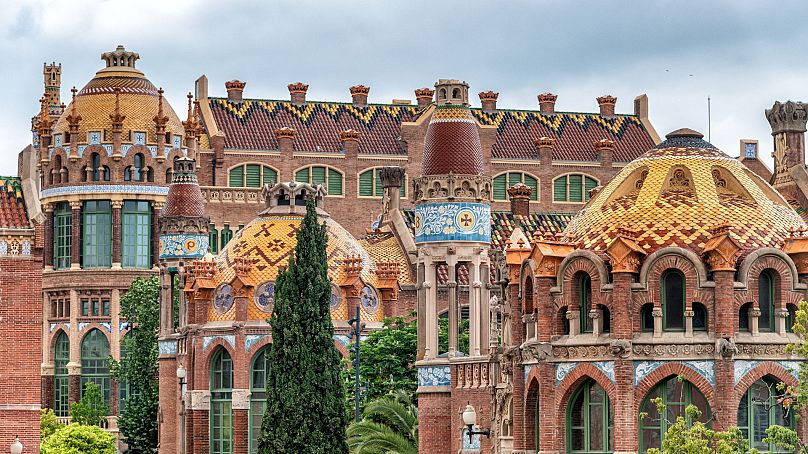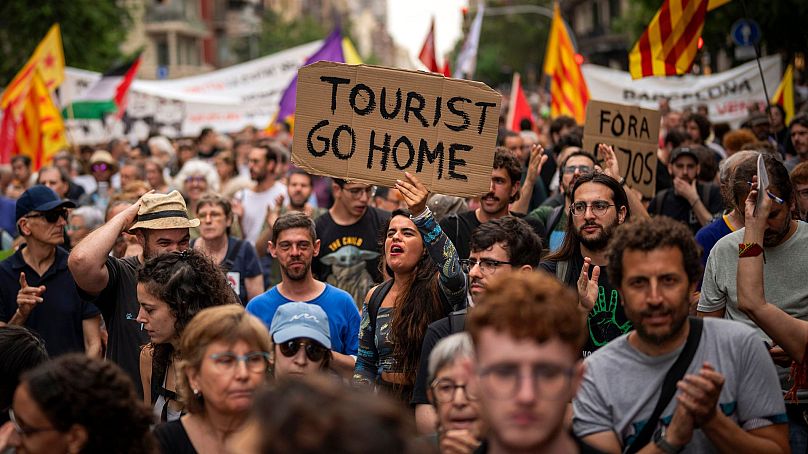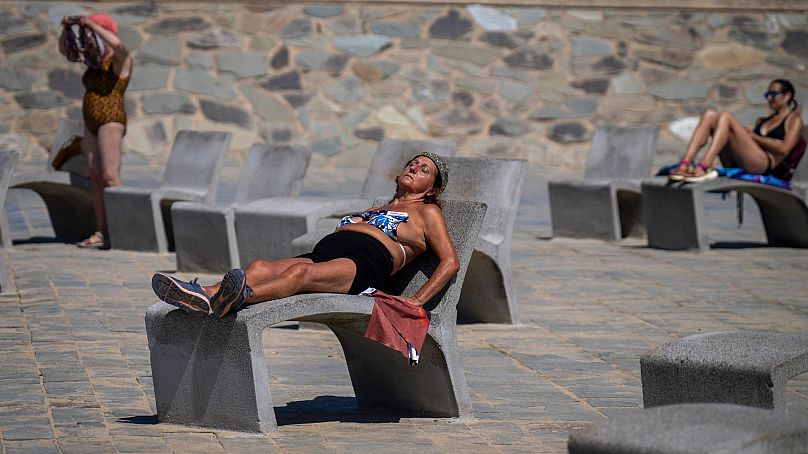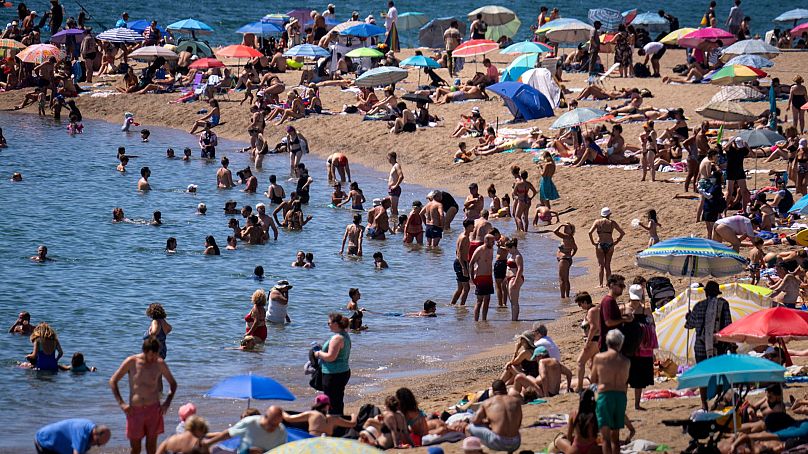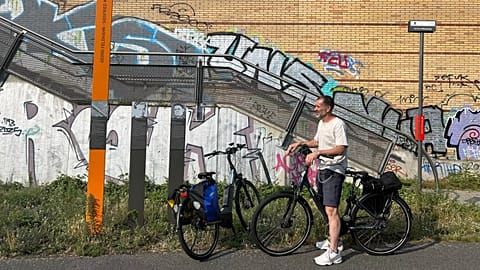Barcelona is a city in flux: Here’s how it’s changed in the 10 years since I moved here.
 ADVERTISEMENT
ADVERTISEMENT
I have now been in Barcelona for a decade - the longest I’ve lived anywhere in the world and the place I feel most at home.
Over this time I have seen the city transform, shift and change into the place it has become today. While some of the changes have been positive ones, others show that the city will face some real challenges in the near future.
But, for better or worse, it remains a place I’m proud to call home and I’m still in awe of its greatness.
Modernist marvels and sprawling markets: New attractions in Barcelona
I have been lucky enough to witness the opening of many major attractions, which have now become almost emblematic of Barcelona and visited by thousands every year.
The first of these was the Recinte Modernista de Sant Pau back in 2019, a UNESCO World Heritage-listed old hospital which is the largest Art Nouveau complex in the world.
Another Modernist marvel, the Casa de les Punxes opened to the public for the first time in 2016. Then in 2017, Casa Vicens opened its doors - the first house that Barcelona’s celebrated architect Antoni Gaudí ever designed.
The very next year, the elegant Sant Antoni Market reopened for the first time since 2009 after an €80 million renovation, which completely changed the face of the neighbourhood bringing with it lots of new businesses and investment.
Overtourism: Crowding and cruise caps in Barcelona
New attractions, however, have brought bigger crowds. Barcelona was one of the first European cities to complain about overtourism and during just my time alone I have seen the number of visitors increase from 16.7 million in 2014 to 26 million in 2023.
This can be felt in many aspects of life from more crowds on public transport and clogged up streets in the Gothic Quarter to the increase in prices and tourist traps offering poor quality food and goods.
It also affects the city festivals, which are no longer as enjoyable as they once were due to constant queuing and hordes of people.
It has created a big problem with nighttime noise, too - especially in the small central streets. Tourists of course also add to pollution levels, particularly those who visit on a cruise. Cruise ships in fact emit three times as much air pollution as all of the city’s cars put together.
Last October, Barcelona moved its main cruise terminal away from the city's central residential areas and enforced a new cap of seven ships per day.
Greenifying the city: How Barcelona has tackled its air pollution problem
While the hoards of tourists are contributing to pollution in Barcelona, the city has made strides in combating it.
It has long had a problem with poor air quality, and between 2010 and 2018 the maximum levels of nitrogen dioxide surpassed the limits set by the EU.
Since then, the city has made a conscious effort to try and be greener and introduce more sustainable practices. This has meant a lot of roadworks and upheaval, but ultimately it has paid off.
In the area of Glòries, there is now a new 20,000 square-metre park, and new green hubs or superblocks have been created in the Eixample district, along with four tree lined pedestrianised streets. The latter were finally completed in 2023.
Barcelona also introduced its first low-emission zone which bans cars from entering the city limits if they don’t meet official environmental label standards.
Now air pollution levels are close to those in 2020 and 2021 during the pandemic - and in 2023, the pollutants were finally below the legal limits set by the EU.
Unbearable summers: The rise of drought and heatwaves in Barcelona
Unfortunately, no amount of greenery can shield Barcelona from the growing climate crisis.
With heatwaves sweeping across Europe this summer, global warming is really starting to hit home. I have seen it unfold here with my own eyes.
Barcelona's weather used to be very predictable - cold sunny winters, rainy springs, hot and humid summers with intense heatwaves lasting only around two weeks and mild, slightly wet autumns.
But over the last few years, patterns have changed: heatwaves are now the norm and we’ve experienced the worst drought in the city in history.
Records from the State Meteorological Agency AEMET show that 2022 was the hottest year on record, while 2023 was the second hottest, and this summer, the city recorded its highest temperature since records began of 40C.
Fountains haven’t been turned on in the city in at least two years and although reservoir levels increased slightly this year, they are still low and drought is an ongoing concern.
The rise of veggie food and authentic global cuisine in Barcelona
With the backdrop of climate change, Barcelona residents have started to embrace greener lifestyles.
Being a vegetarian used to be very difficult here, but in the last five years or so there has been a big shift towards new vegetarian, vegan and healthy eating spots.
When I first arrived, you couldn’t even buy tofu, veggie burgers or hummus in the regular supermarkets. Today there are many more options and one of the city’s most popular chains - Honest Greens - is mostly plant based.
The food scene at large has also changed immensely during my time in Barcelona. Primarily there’s more of a global outlook.
International food used to not be very authentic, but nowadays the city’s multicultural food scene is one of the reasons I love it so much. I can get everything from traditional Indian masala dosas and proper Vietnamese pho to Mexican eats that live up to the real deal.
Recognition on the world stage: Barcelona’s best food and drinks
Barcelona's F&B scene has really come into its own in the last 10 years, making a name for itself on an international level.
Barcelona bar Sips was awarded the title of World’s Best Bar in 2023, while Paradiso came in fourth place.
The city’s Disfrutar restaurant was named World’s Best Restaurant 2024 and also came in second place in 2023.
Not only that but the Top 50 Pizza awards listed Barcelona’s Sartori Panatieri as the best pizza outside of Italy.
Barcelona has so many superlatives these days that it’s hard to keep track of them all.
Rent prices have soared in Barcelona while wages remain stagnant
With all this international interest, there’s no wonder that Barcelona has become a far more expensive place to live over the last decade.
The city used to be very affordable, both for residents and visitors, but I have seen dramatic price increases during my time here.
The cost of renting has risen by a whopping 62.1 per cent in the last 10 years and the price of food shopping has gone up by 38 per cent just in the last three years.
In a recent attempt to combat this issue, Barcelona announced a major crackdown on short-term tourist rentals over the next five years.
Meanwhile, according to website InfoJobs, salaries have only increased by 3.4 per cent in the last decade. This has put a huge strain on the local population, and it can be seen and felt.
The Catalan independence movement in Barcelona
There have been a lot of ups and downs when it comes to support for Catalan independence. I’ve seen it both rise and wane during my time here.
The height of this was in 2017 during the failed independence bid, which under Spanish law was deemed illegal. This ultimately led to violence, mass protests and the jailing of nine government separatists.
But just seven years later, Spain has passed its Catalan amnesty law, which aims to remove pending legal action against those who were accused.
Catalonia has also recently voted in a new socialist government, ending over a decade of separatist rule in the region.















